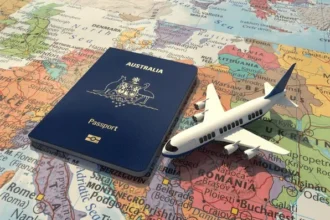Adopting a child from Nigeria and bringing them to Australia involves a detailed legal and immigration process. The Australian Adoption Visa (Subclass 102) allows Nigerian parents, who are Australian citizens or permanent residents, to sponsor an adopted child to migrate to Australia.
This visa provides the adopted child with permanent residency, access to education, healthcare (Medicare), and social services, and a pathway to Australian citizenship. However, the adoption process requires strict adherence to both Nigerian and Australian adoption laws to ensure a successful application.
This guide explains who is eligible, the step-by-step application process, required documents, processing times, and key considerations when applying for an Australian Adoption Visa (Subclass 102) as a Nigerian parent.
What Is the Australian Adoption Visa (Subclass 102)?
The Adoption Visa (Subclass 102) is a permanent residency visa for children adopted outside Australia by Australian citizens, permanent residents, or eligible New Zealand citizens. This visa allows the child to live in Australia permanently, attend school, receive medical care, and eventually apply for Australian citizenship.
This visa is only available if the adoption was completed legally under Nigerian adoption laws and meets Australia’s immigration and child welfare requirements.
Who Can Apply for the Adoption Visa (Subclass 102)?
To apply for the Adoption Visa (Subclass 102), the following conditions must be met:
✔ The adoptive parent must be an Australian citizen, permanent resident, or eligible New Zealand citizen.
✔ The child must be under 18 years old at the time of application.
✔ The adoption must comply with Australian and Nigerian adoption laws.
✔ The adoption must be finalized before the visa application is lodged.
✔ The adoption must not be for commercial purposes (e.g., child trafficking, exploitation).
✔ The child must meet health and character requirements.
Step-by-Step Application Process for Nigerian Parents
Step 1: Verify Adoption Laws in Nigeria and Australia
Nigerian parents must ensure that the adoption is legally recognized in both Nigeria and Australia.
✔ Nigeria follows state-specific adoption laws, with Lagos, Abuja, and other regions having their own adoption processes.
✔ The National Agency for the Prohibition of Trafficking in Persons (NAPTIP) oversees international adoptions to prevent child trafficking.
✔ In Australia, adoption is regulated by the Department of Home Affairs and must meet international child protection standards.
Step 2: Obtain an Adoption Order from Nigeria
Nigerian parents must apply for an Adoption Order through the Nigerian Ministry of Women Affairs or State Social Welfare Department.
✔ The adoption process involves:
- Submitting an application for adoption to the Nigerian court.
- Passing a home study assessment by Nigerian authorities.
- Living with the child for a required foster period (varies by state).
- Receiving court approval and an official Adoption Order.
✔ The adoption must be legally finalized before applying for the Australian Adoption Visa.
Step 3: Gather Required Documents
Applicants must prepare and submit the following:
- Child’s birth certificate (showing original parent details).
- Official Adoption Order issued by the Nigerian court.
- Proof of relationship with the child (photos, home visits, supporting documents).
- Australian parent’s citizenship or permanent residency documents.
- Medical reports of the child (confirming they meet Australian health requirements).
- Police clearance certificate for Nigerian parents (confirming no criminal history).
- Consent documents from the child’s biological parents (if applicable).
- Evidence of financial capacity to support the child in Australia.
All documents must be translated into English and certified by an authorized translation agency.
Step 4: Submit the Adoption Visa Application Online
- The visa application must be lodged online via the ImmiAccount portal on the Australian Department of Home Affairs website:https://immi.homeaffairs.gov.au/
- Attach all required supporting documents.
- Pay the visa application fee (AUD 2,865, approx. NGN 1.7 million).
- Receive a Transaction Reference Number (TRN) to track the application.
Step 5: Attend Biometrics and Health Examinations
- Nigerian parents and the child must submit biometric data (fingerprints and photographs).
- The child must undergo medical examinations at an Australian-approved panel physician center in Nigeria.
Step 6: Wait for Processing and Visa Decision
- Processing times vary, but most applications take between 12-24 months.
- The Australian Immigration Office may request additional documents.
- If approved, the child will receive an Adoption Visa (Subclass 102), granting permanent residency in Australia.
Processing Time for Australian Adoption Visa (Subclass 102)
Processing times vary depending on the complexity of the case and whether all required documents were submitted correctly.
📌 75% of applications are processed in 12-18 months.
📌 90% of applications are processed in 18-24 months.
Factors that may affect processing time include:
✔ Delays in adoption paperwork or verification by Nigerian authorities.
✔ Additional health or character assessments required.
✔ Incomplete documentation or missing information.
Common Challenges and How to Overcome Them
🔹 Delays in Obtaining an Adoption Order in Nigeria
✔ Work closely with Nigerian adoption agencies and social welfare offices to speed up the process.
🔹 Incomplete Documentation
✔ Ensure all adoption documents are certified and translated into English before submission.
🔹 Health and Character Issues
✔ The child must meet Australian health and character requirements. If medical conditions exist, seek professional legal advice before applying.
🔹 Long Processing Times
✔ Apply as early as possible and ensure all required documents are submitted correctly.
Benefits of the Australian Adoption Visa (Subclass 102)
- Permanent Residency – The child can live, study, and work in Australia permanently.
- Access to Healthcare – Eligibility for Medicare (Australia’s public health system).
- Education Opportunities – The child can attend Australian schools and universities.
- Family Reunification – The child can later sponsor family members for visas.
- Pathway to Citizenship – The child can apply for Australian citizenship after meeting residency requirements.
Frequently Asked Questions (FAQs)
1. Can I adopt a Nigerian child and bring them to Australia?
✔ Yes, if you are an Australian citizen or permanent resident and complete the legal adoption process in Nigeria.
2. Do I need to be married to adopt a child in Nigeria?
✔ Some Nigerian states require married couples, while others allow single applicants.
3. Does the child need to meet English language requirements?
✔ No, but they may be required to attend English classes upon arrival in Australia.
4. Can I adopt a relative and bring them to Australia?
✔ Yes, but you must prove that the adoption is not for immigration purposes alone and complies with Australian child welfare laws.
5. What if the child has health issues?
✔ Some medical conditions may require waivers, but serious health issues might affect visa approval.
Conclusion
The Australian Adoption Visa (Subclass 102) is a permanent residency pathway for Nigerian children legally adopted by Australian citizens or permanent residents. The process requires compliance with Nigerian and Australian laws, extensive documentation, and legal approval before a visa can be granted.
To improve chances of success, Nigerian parents must follow legal adoption procedures, provide clear supporting documents, and meet all visa requirements. With proper planning and the right legal guidance, bringing an adopted child to Australia is achievable.



